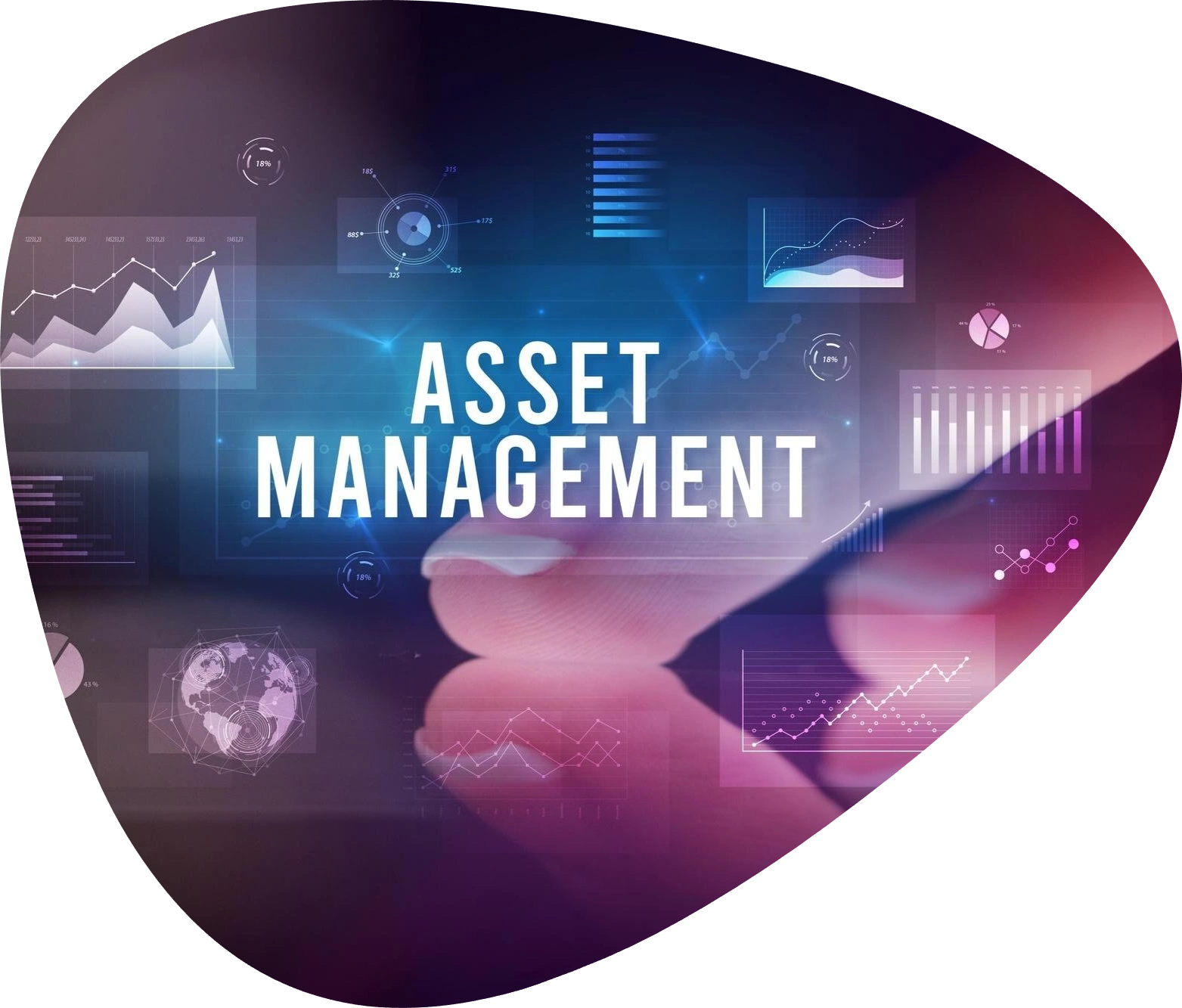Asset Management
Asset management refers to the professional management of various investments such as stocks, bonds, real estate, commodities, or other financial instruments on behalf of individuals, companies, or institutions. The primary goal is to grow the client’s wealth over time while balancing risk according to their objectives and preferences. Asset management is not just about investing money—it’s a strategic process of optimizing financial resources to achieve specific goals. It involves careful planning, continuous monitoring, and adapting to changes in the market. Professionals in this field analyze economic trends, assess risk, and construct portfolios that aim to maximize returns while minimizing potential losses.


Asset Management – Transparent, Efficient, and Growth-Oriented
Asset management is the professional management of various investments—such as stocks, bonds, real estate, commodities, and other financial instruments—on behalf of individuals, companies, or institutions. Its core objective is to grow wealth over time, while balancing risk and ensuring that investments align with the client’s goals. Asset management is more than just investing money—it’s a strategic approach to optimizing financial resources. Professionals in this field analyze markets, assess risks, and design portfolios that aim to maximize returns while protecting capital.
Enterprise Asset Management – Secure, Efficient, and Growth-Focused
Enterprise Asset Management (EAM) is the professional oversight and strategic management of an organization’s financial and operational assets. This includes investments such as stocks, bonds, real estate, commodities, and other financial instruments, as well as physical assets like equipment and infrastructure. The goal is to maximize value, ensure security, and support sustainable growth while aligning with the enterprise’s long-term objectives.
Professional Investment Oversight
Asset management involves expert management of financial resources, including stocks, bonds, real estate, and other instruments. Professionals analyze markets, assess risks, and make informed decisions to grow wealth.
Diversification for Risk Mitigation
By spreading investments across different asset classes, sectors, and geographies, asset management reduces exposure to individual risks while aiming for stable returns.
Customized Portfolio Strategies
Portfolios are tailored to align with each client’s goals, risk tolerance, and investment horizon, ensuring personalized wealth growth strategies.
Continuous Monitoring and Rebalancing
Asset managers track performance regularly, adjusting allocations to respond to market fluctuations and keep the portfolio aligned with objectives.
Transparency and Reporting
Clients receive clear, timely updates on portfolio performance, fees, and investment decisions, fostering trust and accountability.
Technology-Driven Optimization
Modern asset management leverages AI, big data analytics, and digital platforms to enhance decision-making, optimize returns, and improve operational efficiency.
Asset Management Framework – High-Performance, Transparent, and Reliable
The Asset Management Framework is a structured approach to managing financial and operational assets for individuals, enterprises, and institutions. It integrates strategic planning, professional oversight, and advanced technology to optimize asset performance, ensure transparency, and maintain reliability.

Asset Management Framework – Secure, Efficient, and Globally Accessible
The Asset Management Framework is a structured system for managing financial and operational assets of individuals, enterprises, and institutions. It combines professional expertise, strategic planning, and advanced technology to deliver secure, efficient, and globally accessible solutions for asset oversight. The framework ensures that assets are optimized for growth, managed with transparency, and available for global investors or stakeholders, bridging traditional management practices with modern, digital solutions.
FAQ
What is asset management?
Asset management is the professional management of investments—such as stocks, bonds, real estate, and commodities—on behalf of individuals, companies, or institutions. Its goal is to grow wealth while managing risk.
Who needs asset management services?
Individuals seeking long-term wealth growth, corporations managing surplus capital, and institutions like pension funds or endowments all benefit from professional asset management.
How does asset management reduce risk?
Through diversification across asset classes, sectors, and geographies, asset management spreads risk and protects the portfolio from significant losses.
What types of assets can be managed?
Assets include equities, fixed-income instruments, real estate, commodities, and alternative investments such as private equity, hedge funds, or digital assets.
How are portfolios customized?
Portfolios are tailored based on the client’s financial goals, risk tolerance, investment horizon, and liquidity requirements to maximize returns while controlling risk.
How often is a portfolio monitored?
Professional asset managers continuously track performance and rebalance portfolios regularly to respond to market changes and keep investments aligned with objectives.
How does technology enhance asset management?
AI, big data analytics, and digital platforms improve investment decision-making, optimize portfolio performance, provide real-time insights, and increase operational efficiency.

